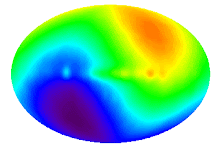Gut Microbiota and Its Pathophysiology in Disease Paradigms
The gut flora carries out important functions for human health, although most of them are still unknown, and an alteration of any of them, due to a condition of dysbiosis, can lead to relevant pathological implications. Commensal bacteria in the gut are essential for the preservation of the integrity of the mucosal barrier function and an alteration in the anatomic functional integrity of this barrier has been implicated in the pathophysiologic process of different diseases. The gut microflora plays a role in modulating the intestinal immune system; in fact, it is essential for the maturation of gut-associated lymphatic tissue, the secretion of IgA and the production of antimicrobial peptides. The enteric flora represents a potent bioreactor which controls several metabolic functions, even if most of them are still unknown. The main metabolic functions are represented by the fermentation of indigestible food substances into simple sugars, absorbable nutrients, and short-chain fatty acids. Furthermore, the gut microbiota exerts important trophic and developmental functions on the intestinal mucosa. This overview focuses briefly on the physiological role of the gut microbiota in maintaining a healthy state and the potential role played by disturbances of both the function and composition of the gut microbiota in determining important pathological conditions, such as irritable bowel syndrome, inflammatory bowel disease, metabolic syndrome, obesity, and cancer.
skip to main |
skip to sidebar
網誌存檔
-
▼
2012
(31)
-
▼
4月
(31)
- Gut-Liver Axis and Sensing Microbes
- The Microbes of the Intestine An Introduction to T...
- Effect of Interactions of Bacteria, Viruses, and E...
- Human gut microbiome: the second genome of human body
- Microbiota immune system interaction: an uneasy al...
- Metagenomics: Key to Human Gut Microbiota
- MICROBIOTA:THE FOGORTTEN ORGAN
- Gut Microbiota and Its Pathophysiology in Disease ...
- GUT MICROBIOTA
- The gut microbiota as an environmental factor that...
- Human gut microbiome: the second genome of human body
- Microbiota immune system interaction: an uneasy al...
- Whole body systems approaches for gut microbiota t...
- HUMAN SUPERORGANISM
- Infection Control in the Multidrug-Resistant Era: ...
- The gut's 'friendly' viruses revealed
- Ecological and evolutionary forces shaping microbi...
- 功能元基因组学与中药研究国际研讨会
- 不適當不合理的過度的抗生素使用,將殺害對我們人體有益的細菌。抗生素使用考慮的除了聚焦在細菌抗藥性之外...
- 停止殺害對我們人體有益的細菌
- 人類腸道中的微生物體,提供了豐碩的有關健康和疾病的信息。它們訴說了人體內在的運轉運作的故事。
- 人類腸道微生物體,具有消化、生物降解、生物聚合、生物轉化、解毒作用、防衛功能、促進生長成長發展發育成...
- 人類超級生物體和人類微生物體
- 這個廣泛的微生物基因體參與了食物、藥物和其他有毒性的化合物的,初次通過的新陳代謝和生物可利用性的生物...
- 這個人類超級生物體,包括了兩套基因體,一個完整的人類基因體和數目巨大的微生物基因體。這兩套基因體一定...
- 人類腸道的微生物體能夠控制器官的功能。
- 人類腸道微生物體,是一個最緻密的、最複雜的、最生物多樣性的、動態的生態體系。生態的和演化的力量形塑人...
- 人類腸道微生物體,包含了大約一百兆個微生物,它的數目是人類身體所有細胞數目的十倍,這個人類腸道微生物...
- 人類腸道微生物體和人類超級生物體
- 人類腸道微生物體和人類超級生物體
- 人類生態系統是非常重要的,它決定甚麼是我們能做的和甚麼是我們能吃的。
-
▼
4月
(31)

沒有留言:
張貼留言